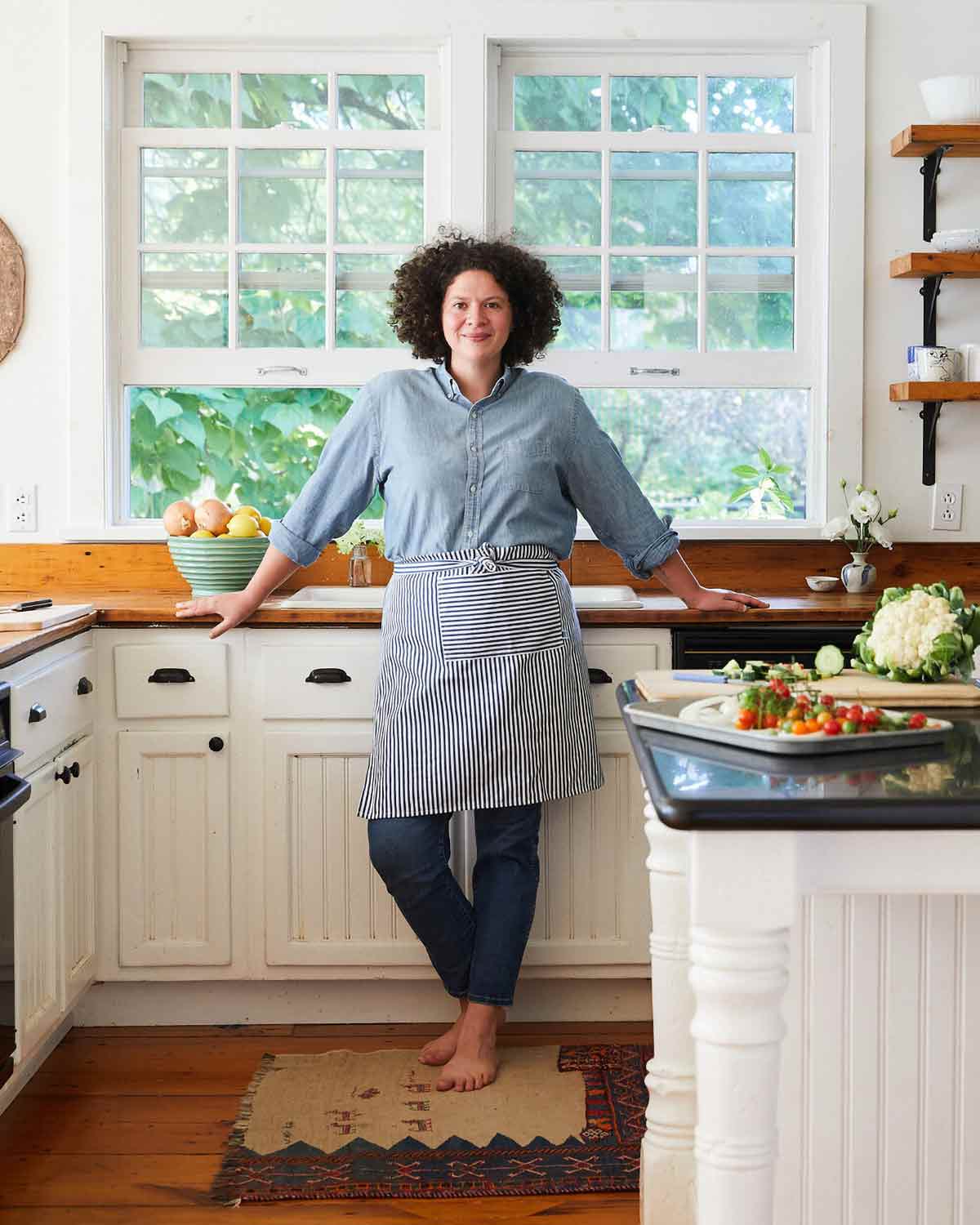
We chat with cookbook author Julia Turhsen about how cooking builds community, quashes anxiety, creates memories, and more.
Contents
Subscribe on Apple | Spotify | Stitcher | Amazon | Google | iHeart | TuneIn
☞ If you like what you hear and want to donate, even $1 will help! Thank you.
Powered by RedCircle
Chat with us
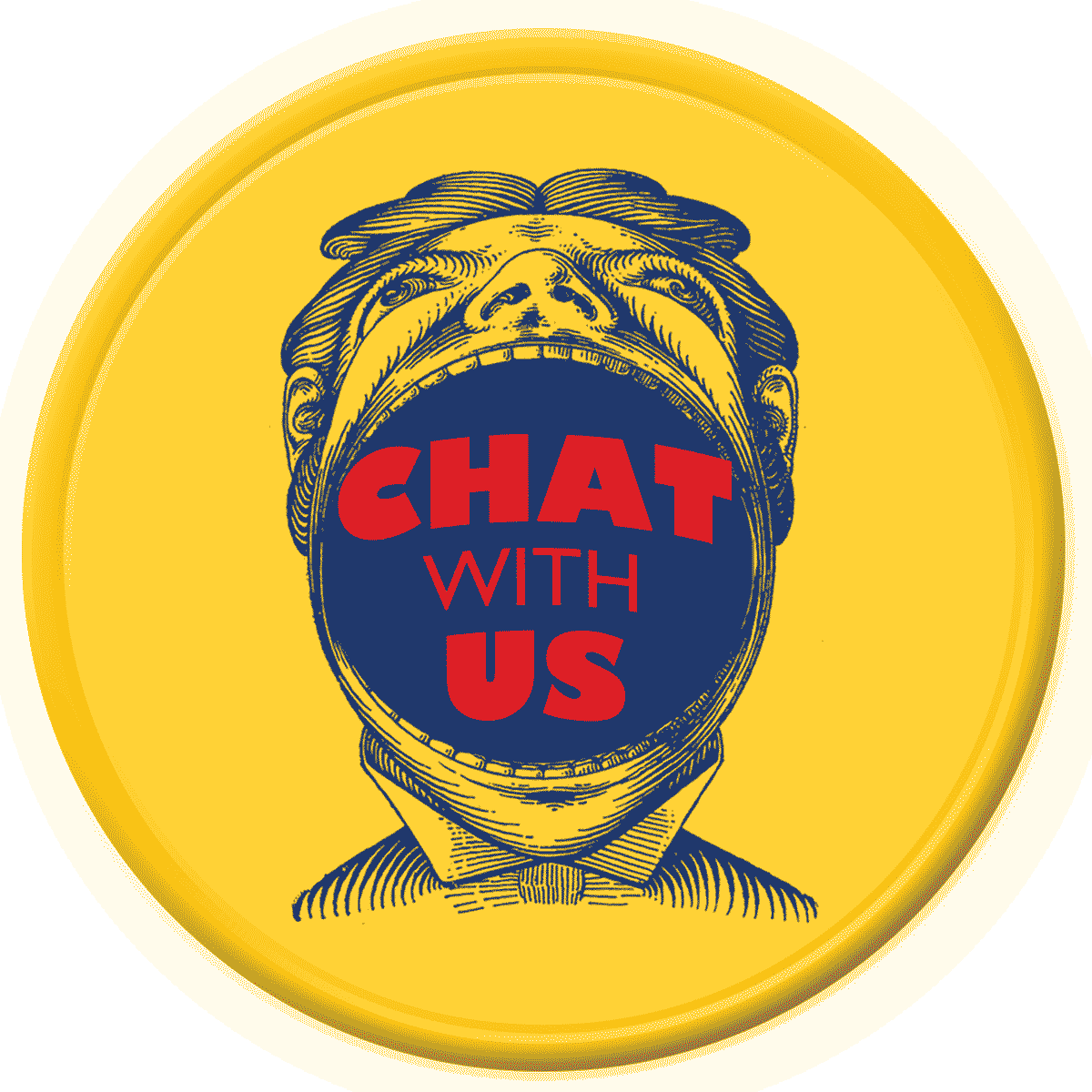
Have a cooking question, query, or quagmire you’d like Renee and David to answer? Click that big-mouth button to the right to leave us a recorded message. Just enter your name and email address, press record, and talk away. We’ll definitely get back to you. And who knows? Maybe you’ll be featured on the show!
Transcript
Renee Schettler: David?
David Leite: Mm-hmm?
Renee: I’ve been wondering something.
David: What?
Renee: Well. I’ve been wondering a lot of things.
David: Well, okay.
Renee: What type of cookbook do you like? I mean, not just you use that works for you, but what are the types of cookbooks you gravitate towards?
David: Oh gosh. Well, as you can see here, I’ve got ceiling to floor, three bookcases full of cookbooks.
Renee: But which ones do you reach for again and again…
David: And again? It really is related to personality for me. And I don’t mean personality in the sense of celebrity, I don’t mean that. But books that have personality—books that are person-centric or people-centric. I’m not a big fan of one of those compendiums that have 400 or 500 recipes, they just don’t interest me. And I’ll cook from them, or if I need it for research or for work, but I really am drawn to books that opens up the door to someone’s world. Even if it’s their personal world in their kitchen or a world to a culture or a world to a group of people. Those are the ones that I’m fascinated by. And I have this standard that a great cookbook is one that I can bring to bed and bring to the kitchen. If that cookbook author can stand both of those tests, then they’re a good cookbook author and I like the book, meaning that I can lie in bed and read. And I’m just as satisfied there, reading the cookbook, as I am satisfied cooking from the cookbook. That’s the most important thing for me.
Renee: That surprises me.
David: Really, why? Why does that surprise you?
Renee: Well, because you’re so technically precise about things. I guess I would have thought that you preferred cookbooks that were very matter of fact, and almost dictatorial in telling you exactly what to do to get the most perfect results.
David: And those are great books, but they’re not the books that I covet, they’re books that I go to to be precise and exact. But the ones that will stay with me and have stayed with me for decades, those aren’t the ones. I take two or three recipes out of those, photocopy them or scan them, but they’re not the ones that I keep for a long time. What about you?
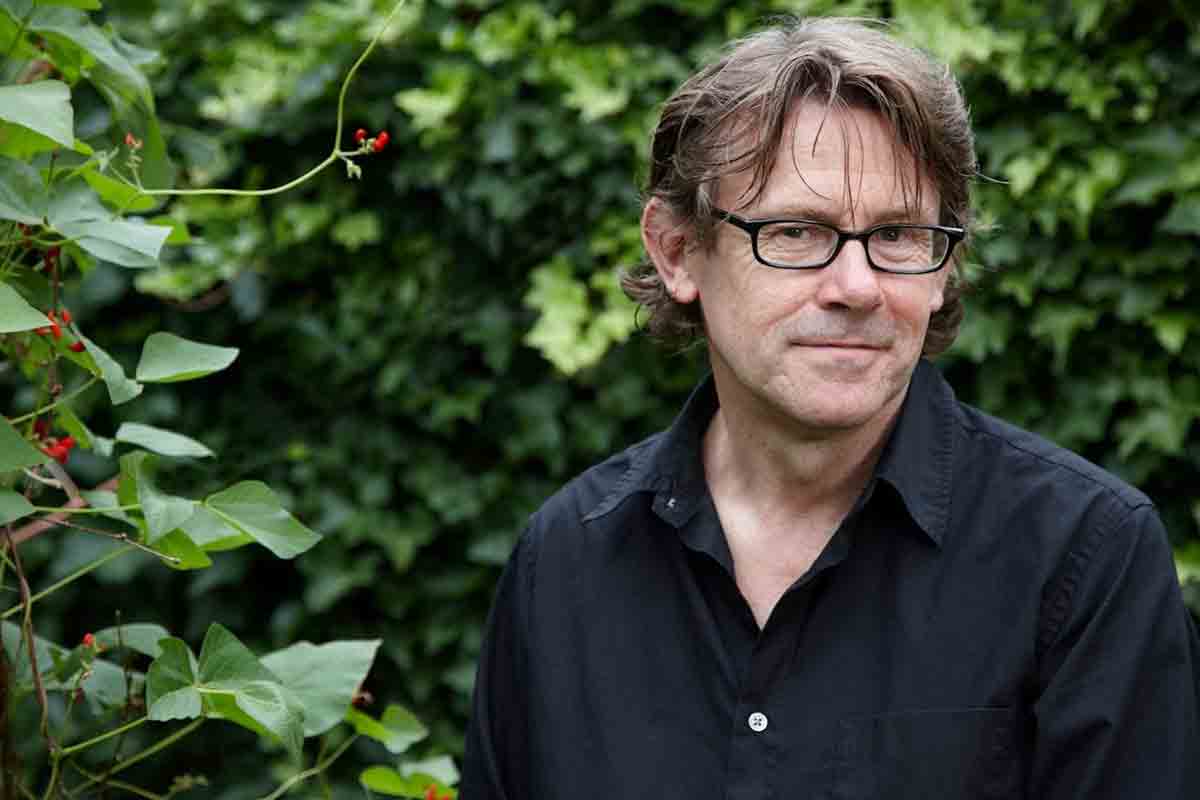
Renee: Surprisingly similar to you. Ones where you feel as though you know the author, or you’re getting to know them and you’re getting a glimpse, even just in the way they phrase things. So Sarah Foster decades ago had some cookbooks, Nigel Slater, the British cookbook author with his diaries…
David: Yeah.
Renee: …where they interspersed life with cooking and things get a little messy. They’re not always perfect. And you just kind of zig and you zag, and you deal with what shows up, and it still works out lovely. In fact, usually lovelier than you could have orchestrated yourself.
David: Yeah.
Renee: So the people who can roll with that and encourage that. And I think our guest today is one of my favorite people who accomplishes that really well.
David: I agree with you. And our guest today, she ticks off all those boxes. Julia Turshen is the bestselling author of three cookbooks, including the brand spanking new Simply Julia: 110 Easy Recipes for Healthy Comfort Food.
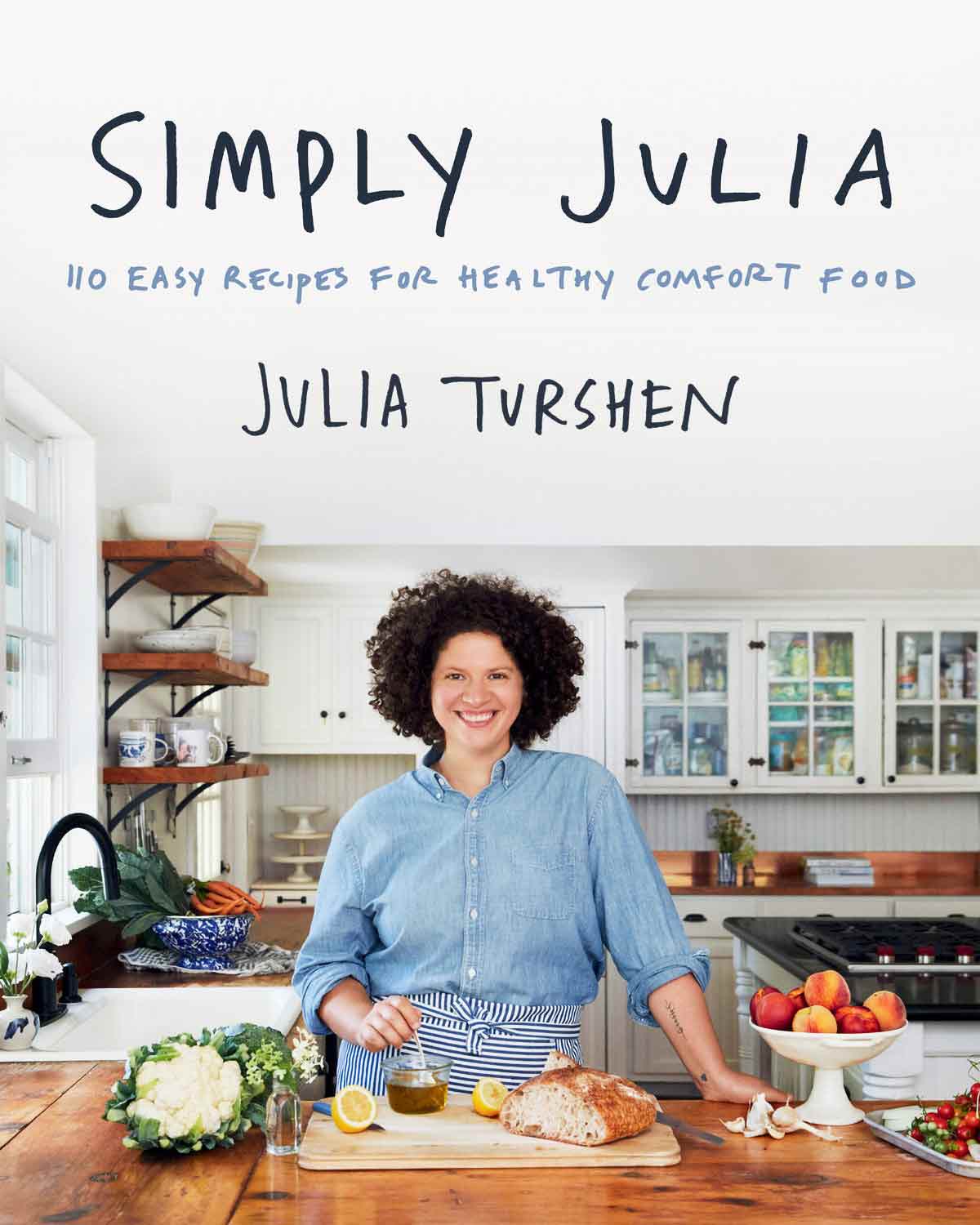
Renee: I’m Renee Schettler, Editor in Chief of the website, Leite’s Culinaria.
David: And I’m David Leite, its founder. And this is Talking With My Mouth Full, a podcast devoted to all things food, the people who make it, and the stories that make the people. Welcome to the show, Julia.
Julia Turshen: Thank you so much for having me.
Renee: Julia, we’ve got to say, you’re uniquely yourself. With most guests, we know exactly what we’re going to talk about. A particular recipe, maybe a cooking technique, a new book. But with you honestly, we had a really hard time narrowing down what to talk about. Just because there’s so much. Well, let’s put it this way, you’re a very interesting person and personality with a lot of experiences.
David: So it was hard to narrow it down to just the one topic we wanted to talk to you about.
Julia: Well, you have come up with much nicer words than just being scattered and all over the place, so I appreciate that very much.
How do you see yourself?
David: We do try very hard here. The euphemistic podcast. So one of the things I’d like to ask you is, I’m always curious about how people see themselves and how they identify. For example, people often think of me as a chef, which is far, far from the truth. I consider myself a writer first, last, and foremost. And I’m curious because you are so varied, as Renee said, and so scattered as you said, how would you see yourself?
Julia: That’s a great question. And I really identify with you about the thing about being called a chef, because it’s not something I consider myself and I get called that a lot, and I always look behind my shoulder to see who they’re talking to.
David: “Who are you talking to? Are you talking to me?”
Julia: Yeah. I guess first and foremost, I don’t know, it’s a weirdly hard question. When it comes to the work I do, I consider myself a home cook and a cookbook author, those are the two things I would say first. But just me as a person, I guess I’m my parents’ daughter, I’m my wife’s wife, I’my dog’s mom.
Renee: Beautiful.
Julia: So yeah.
Recipes as poetry
Renee: So many things. And that can probably be traced back all the way to college, where you graduated with a BA in English with a focus on poetry. And you’ve said along the way numerous times that every recipe you write, you approach as if it were a poem, which I think is incredible. Can you tell us more about that?
Julia: Sure, sure. I would love to. I appreciate you doing your homework on that because to go back to David’s question of, who am I, how do I identify? One way is as a poet who doesn’t really write poetry anymore. But yeah, I did study it in college and I say what I just said, because I think if you love poetry, whether you read it or write it, I think you’re going through the world paying attention to small details, is how I think about it. But yeah, in terms of how I apply that to my recipe writing, I think it has come in really handy. And I don’t know if that is just my way of justifying spending a large amount of money studying poetry at a liberal arts college. But no, it does come in handy because writing recipes I think is something that within the conversations about cookbooks, the recipe writing, I always feel like just doesn’t get the credit it deserves and it doesn’t get the value it deserves.
David: Hear, hear. I agree.
Julia: Yeah. And it’s unbelievably technical writing. You could say it as a little bit, like writing a textbook, that part of it, writing those manual instructions. But I try to take a poet’s approach to it, which means I’m trying to be really, really descriptive with my language, I’m trying to be really clear with my language, and I’m trying to evoke some feeling. I’m trying to let you know what it feels like when the chicken is done, what it might sound like or smell like in the kitchen when you’re making whatever it is. So I try to be incredibly descriptive just as I do or I did in poetry. It’s been a little while since I’ve written a poem. Actually, not that long, I wrote one recently out of the blue.
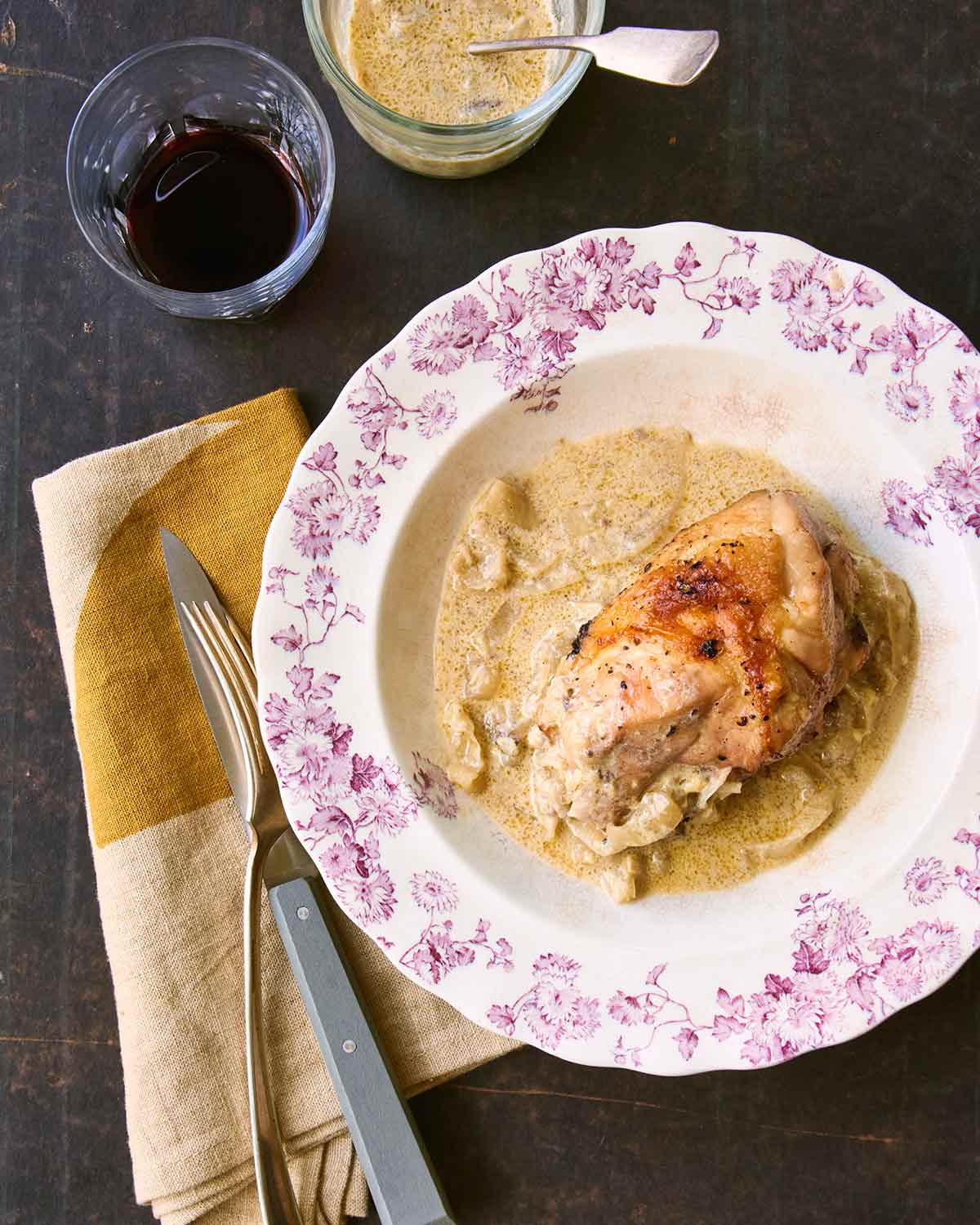
Julia Turshen: But I think the other part of it, too, that’s really important is I think with poetry, there is this innate economy of words, you don’t want to go on and on and on. The same as it is with a cookbook. I try to keep my recipes to one page at the most. I don’t want someone to feel like they have to flip a page to keep getting the instructions they need. If it needs to happen, it’s totally fine, but I try to think of it as just keeping things short and sweet and simple, but also incredibly descriptive, which has a lot to do in a single recipe. So yeah, I approach each one as a poem and it makes the repetition of writing recipes, it makes it a little bit more fun for me and it feels more creative. So yeah. Yeah, thank you for asking that.
David: One of the things I really love about your work, and I have this reaction, I had it to Julia Child, and I’ve known Julia and Dorie Greenspan and Nigel Slater, is that I feel as if you are in the room with me, you’re in the kitchen with me. And I talk about it as “kitchen ghosts,” that these people inhabit and haunt, in a good way, the kitchen. And I think you accomplish that with what you do in the writing.
Julia: Well, I appreciate that so much. And you just named so many people whose work has meant so much to me and that I keep very close to me, so that means a lot. And I’m glad that comes through, that really makes me feel like my goals are achieved. My goal is to make every reader feel like I am with them in their kitchen, that friendly hand on a shoulder kind of thing. The, “You got this, it’s just dinner, it’s not a big deal.” But also, “We can make this really good and not belittle it. This is really special what you’re doing.” So it’s that combo. So yeah, thank you for that. That means a lot.
Cooking with anxiety
Renee: It’s like having a girlfriend in the kitchen with you. And I think that’s accomplished not just through the recipes and your writing of them, but the other writings that you sneak into your cookbooks. Just these little essays, everything on tips you’ve learned from being a professional chef or a private chef if you rather, to how to deal with anxiety.
David: Which is not something you see in a cookbook, really, how to deal with anxiety.
Julia: Well, yeah, it was something I’m thrilled to include in Simply Julia. And I’ve included a lot of writing and all the work I’ve done, but in this new book I’ve gotten to incorporate these short essays, which is a new thing for me. And it was a way to add this additional layer to the book. In general, I try to pack my books with as much as I can, because I really feel like if someone buys a cookbook, they’ve made an investment. They’ve paid money for this thing, they’re probably going to spend time reading or cooking, they’re going to spend money on ingredients. I really want my readers to feel a great return on their investment. I want to give you everything I possibly can.
Julia: So within the essays and Simply Julia, I got to express a lot and things that are on my mind a lot and weave them in. So yeah, one is about cooking and anxiety. It’s an essay essentially about mental health in a book full of easy recipes. And I think there’s room for books to have more than one thing. I love that I was able to do that. And yeah, I’m glad it resonated in some way.
Renee: Well, and I think it makes you even more like a girlfriend or a great aunt in the kitchen alongside people who are cooking.
Julia: I think about so much all the different reasons I open cookbooks, and then I think, if I’m opening them sometimes not really to cook, but just to be relaxed, if I’m opening them just to read them…I grew up loving cookbooks. I work on cookbooks because I’ve loved them my whole life. And when I was a kid, I couldn’t fall asleep unless I paged through a cookbook, it was like my bedtime story.
David: Absolutely.
Julia: So I think about if that’s true for me, wow, there must be so many reasons people go to cookbooks. So I know that one person can’t be everything for everyone and one book can’t be everything for everyone, I know that, but I try to include a lot in my books because I know people are coming to them for all different reasons.
David: Well, I mentioned to Renee just at the beginning of the show, that a cookbook author has to work well for me in bed as well as in the kitchen.
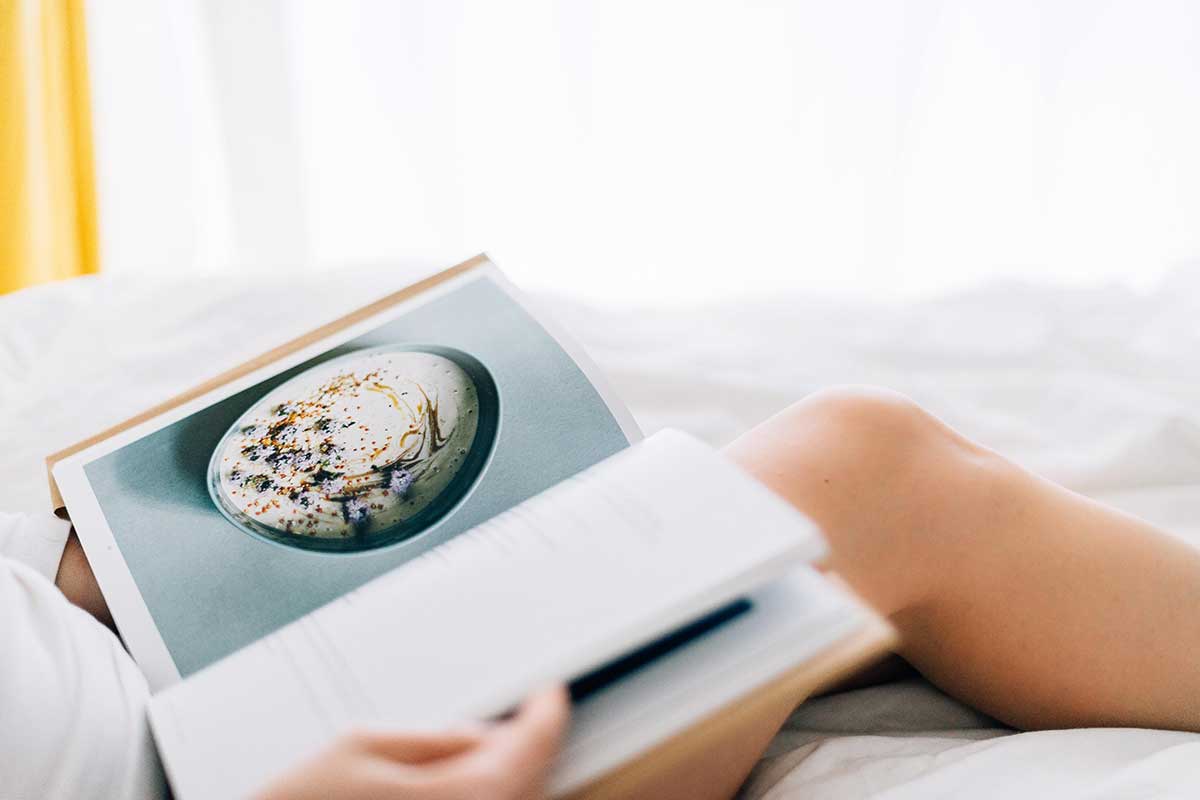
Renee: Oh my.
David: Oh my. But I want to be able to get to know that person and their world and the context of their world in their recipes, as well as in the kitchen. And I think that a lot of your work accomplishes that. And I completely understand, I have a big stack of cookbooks and I didn’t know where they were. My husband had them on his side of the bed underneath the table. And I’m like, “Where did these cookbooks go? I didn’t realize that they were here.” So I completely understand what you’re saying.
Being a citizen of the world
David: And then as something I was deeply, deeply struck by in Simply Julia, I just want to quote this and I want you to speak about it. You said in the introduction, “While I care deeply about giving you trustworthy recipes, pretty photos to show you what they look like, and stories to tell you what they really mean to me, what I care most about is who you’re cooking for, including you. The tools I’m so happy and grateful to share aren’t just for getting a meal prepared, they’re also for being a helpful, involved, caring citizen.” Talk about that, because you don’t see that kind of language or intent in a cookbook.
Julia: Yeah. Thank you for shining a light on that section, because it’s super important to me. I think home cooks are everyday heroes. I think us home cooks are the helpers of our communities, whether it’s the people just within our households or beyond that. And I think when you’re a home cook, it’s more than just cooking. And that’s why I include so much in my cookbooks, because it’s not just the recipes, it’s how the recipes fit into this greater context. It’s how you’re managing to put dinner or breakfast and lunch and dinner on the table. And it’s so many other things. We juggle a lot as home cooks. We also don’t have a group of prep cooks preparing things for us or cleaning things up afterward, we do all of the stuff. And within that, we have the ability to do so much and to organize so much. To be an everyday home cook is to be an unbelievably thoughtful and organized person.
Julia: Even if you’re messy, you’re still thinking about, “How am I going to use this leftover thing in tonight’s dinner? What are we going to do tomorrow? Oh, I have to use up that thing in the freezer.” That kind of thinking can apply not just in your kitchen, but outside of it. So yeah, I think home cooks have the potential to be so involved in your communities, and many of us already are. So I encourage it because just like home cooking, being involved in my community is something I practice on a regular basis and it makes me feel very connected. Both of those things do and they have so much overlap. So I think it’s worth naming in the introduction of a general interest mainstream cookbook. I think it’s really important.
Renee: And you’ve offered ideas as to how home cooks can do that themselves, things that might not have otherwise occurred to them had they not read it in your book.
Julia: Yeah, I think sometimes because home cooking doesn’t get the respect it so deserves in my opinion, I think sometimes we forget how much we’re capable of. We do this really valuable thing, we’re feeding ourselves and the people around us, that’s very valuable. And then we can also apply that value outside of our kitchen. So maybe it means being involved in your local soup kitchen or meal delivery programs, something like that. Maybe it means if you’re already going grocery shopping, maybe we’re getting a few extra things and dropping them off at your local food pantry. It could be something like, I live in a very rural area, so our local firefighters and EMT squads are all volunteers. So I’ve done things like, with my neighbor who used to be the head of the EMT squad for a few decades, at the beginning of COVID, she was so upset that she was retired. She was no longer on the front lines, she couldn’t help people in the way that she has for so long.
Julia: But she thought about all the people who were on the EMT squad and thought, “Maybe we can make the meals. We can take that off their list.” So I helped her do that and we were just cooking in our kitchens and dropping things off. And you know, many people do this kind of work all the time. These things exist in every community. And I think just like home cooking, a lot of these people don’t get the celebration that I think they very much deserve. And maybe that’s because people don’t require a pat on the back, maybe it’s just quiet work, but I think it’s really important work. And it’s work that supports people, whether you’re cooking for the people in your house or just outside of your home. So these things just have value and merit and provide that unbelievable sense of connection that food offers.
Julia Turshen on giving back
Renee: So Julia, related to that, let’s turn to some larger issues that you’ve also mentioned in your books. For example, the section called “Give back and do good.”
Julia: Sure. Yeah. In my previous books in the Small Victories and Now and Again, those were sections I included at the back. I didn’t do that in Simply Julia because I was talking about those things so much throughout the course of the book. But in both of those sections in those books, it includes ideas, things we’ve been talking about, like supporting your local food pantry, that type of thing. But also other ideas like throw a party on election day, maybe not during a pandemic, or it could be an outdoor socially distanced party. But throw a party so there’s something else to put on the calendar and mark this day. And after everyone’s voted, you come over and you have dinner or something like that.
Julia: So just fun, creative ideas about ways we can use cooking, specifically cooking at home, to be more involved in our communities. And it’s also what Feed the Resistance was all about, which was a small book I did in 2017 with contributions from over 20 people in and around food. And it’s all ideas and recipes to get involved with your community, to really use home cooking, to get in there, to be that glue between things that happen and to support things that are already happening.
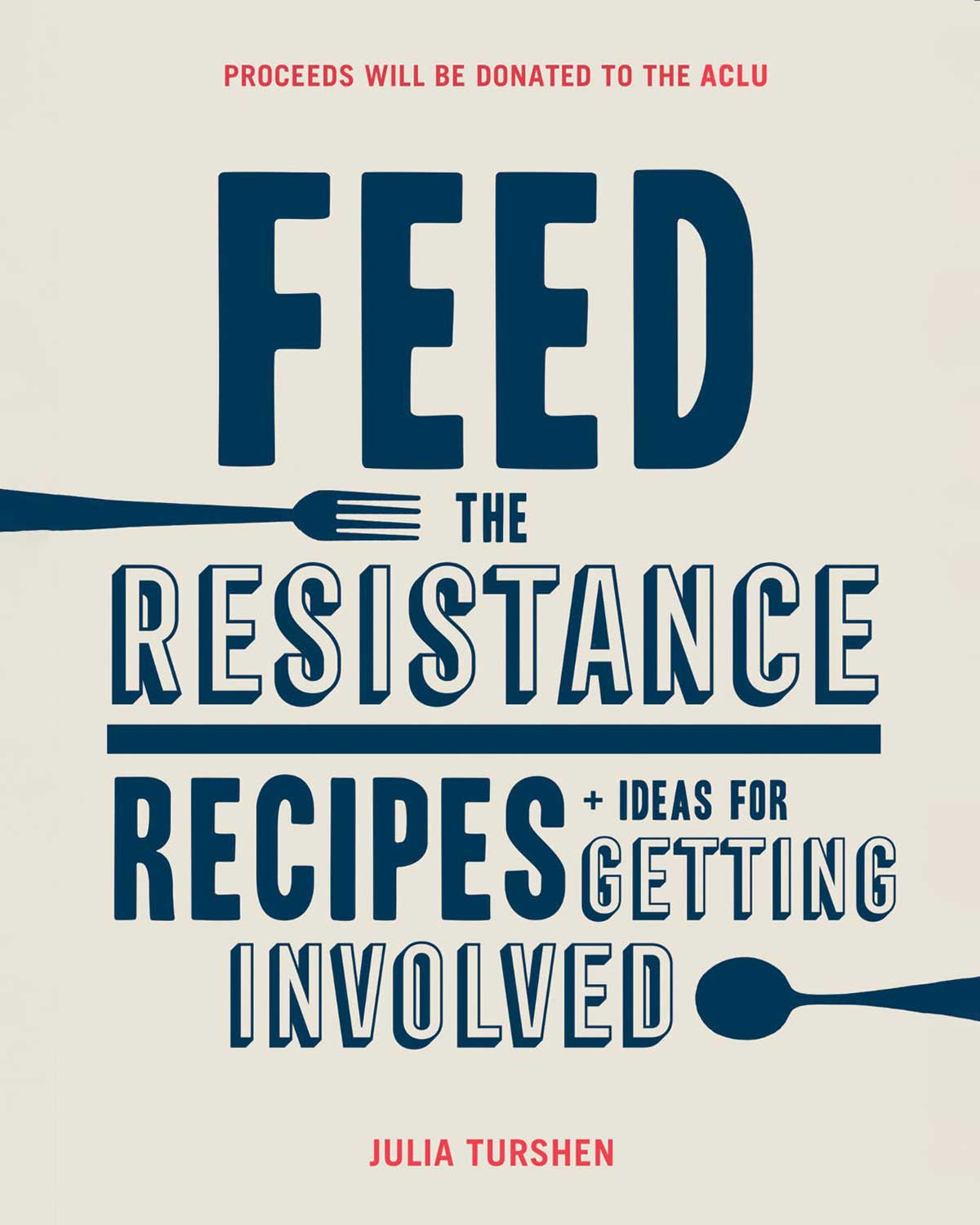
Connection through cooking
David: It’s interesting, hearing you speak and also reading your words, and also the people on staff who just adore you, you make people, or I should say you make me, want to be a better person with the tools I have at hand, which is food and cooking. And that is a remarkable thing for a cookbook and a cookbook author to do if you think about it, because our society and our culture is all about pretty pictures and good recipes, but a lot of the people for whom we cook for is not included in that. And there is the sense of “be the best you can be” in your work. And I think that’s what makes it so special, and that’s why I think so many people are attracted to what you do.
Julia: Well, I appreciate that. There’s a part of me if, I’m being totally honest, that makes me a little nervous hearing that.
David: Okay.
Julia: Because I think I’m very wary of ever being put on any pedestal. And I appreciate what you said so much, but I also think I mess up things all the time. And next to every pretty picture in my book or on Instagram, there is a mess, literally and figuratively. So while I so appreciate that that message comes through in my work, that means a lot to me to hear, it doesn’t come from a place of me knowing any better than anyone else or doing any better than anyone else. It comes from a lot of inspiration from people who are already doing these things. And my desire to just be honestly connected. It’s the word I keep repeating, but I keep coming back to, I want to feel connected as a person.
Julia: I want to feel connected to the people I’m cooking to, I want to feel connected to the people I’m getting ingredients from, I want to feel connected to the people in my community I’m able to serve. And I think feeling that sense of connection is what makes me feel like I have a meaningful life. So I’m always looking for it. And as a cookbook author, I feel like I have this amazing, amazing opportunity to share literal tools for connection, whether it’s a recipe or a list of ideas of ways to get involved, that kind of thing. I think of my job, what I do for a living, maybe this goes back to your first question, “How do you identify?”
David: Identify yourself.
Julia: I am someone who loves to offer tools. I really enjoy that, and it comes through in a lot of different forums. So yeah.
Renee: I’ve long thought that food intersects our lives in all these different ways. And I think what you’ve done is orchestrate or quilted together all these ways and presented them to people in a way that seems approachable.
David: Mm-hmm.
Julia: Yeah. That means a lot to hear, too, because a lot of this type of work can come in a way that feels not so approachable.
Renee: Agreed.
Julia: So yeah, I’m glad to hear that. Thank you.
David: And to clarify my statement of what I mean, the idea of the pedestal, not so much putting you on a pedestal, it’s actually making the reader, I should say, make me think more about what I can do. How can I stand up a little bit straighter with what I do with food? So it’s almost helping me build a little wee pedestal for myself to be a better person with what I do. And I’ll repeat, that is an extraordinary thing I think for a cookbook to do and a cookbook author to do.
Julia: Well, thank you. That’s very meaningful to me because I think that whether it’s in our actions that we take with the food we make, or just even in that ability to be resourceful in general, with cooking. To have that feeling of… This is why Now and Again, which was a book I did a couple of years ago, it’s all about reinventing leftovers because that’s something I love to do. But it comes from that deep satisfaction that comes from taking something that you feel like doesn’t have much left in it and turning it into something great and exciting. I find such satisfaction in that. So I think there’s something about that feeling that can happen in so many different ways, whether it’s through cooking or through these moments of connection that happen too. So yeah, I’m glad to hear that.
Renee: Well, it’s reassuring to me as a reader to know that you have to come up with ideas for things to do with leftover egg whites or tortilla chips, too.
David: Right.
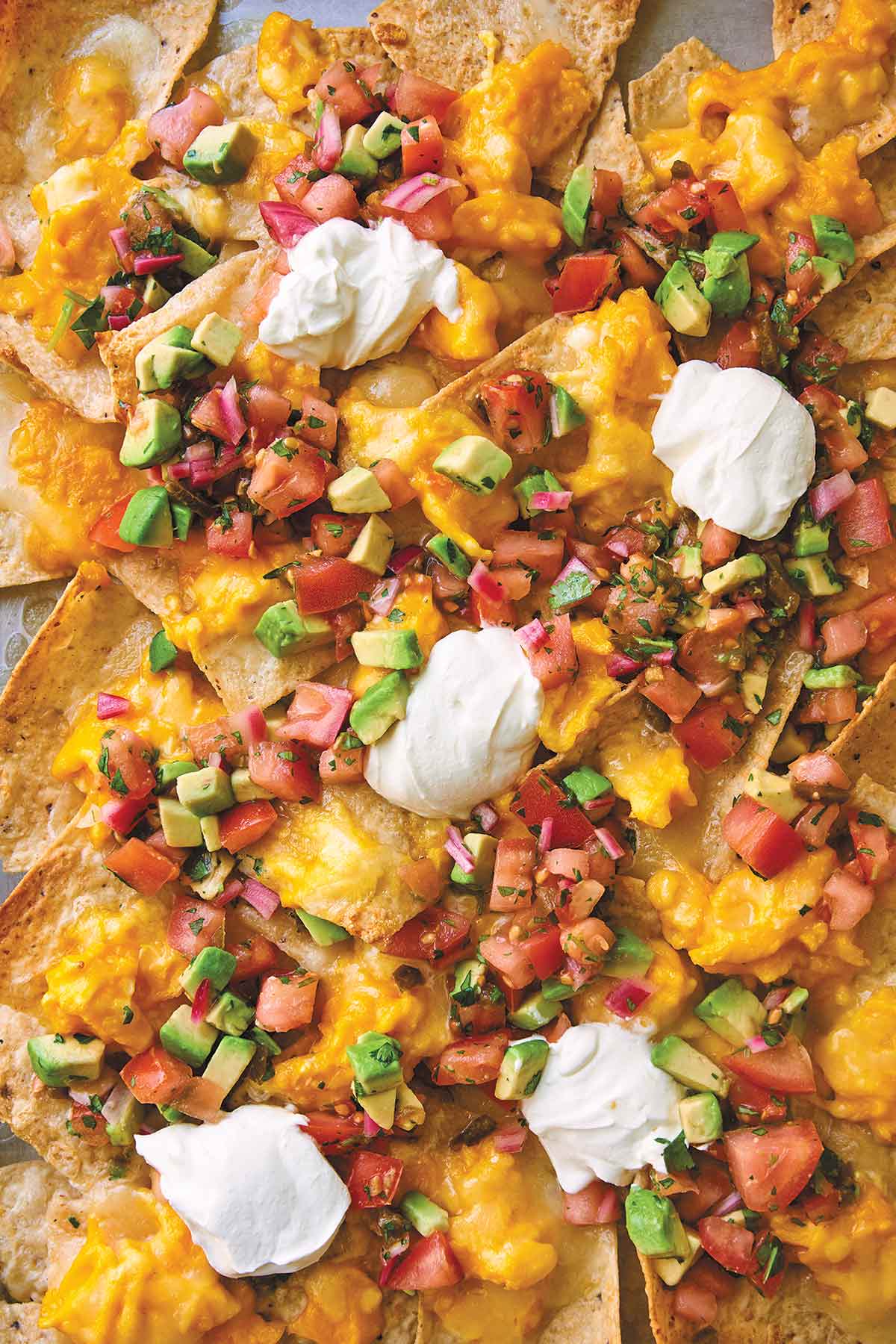
Julia Turshen’s obsession with lists
Renee: Right? Which brings us to your lists. I love lists, I’m always scribbling on the back of envelopes. I suspect that you do, too, because in every one of your books, you’ve got all these lists. And I’m just curious, what’s up with the lists and what’s up with the well, I’ll start there. Let’s start there.
Julia: Okay. So can I tell you a brief and funny story?
David: Sure.
Renee: Yeah, please.
Julia: Which is when I was in high school, I feel like this will just tell you everything you need to know about me. When I was in high school one summer, I spent high school in Westchester County, half an hour outside of Manhattan. And I found that The New School in Manhattan offered a week-long catering course, anyone could sign up for it. So I took it, and on the first day of the course, so I was 16 or something, the youngest person there by far, and I walked into the room and the instructor said, “If you love writing lists, you’re in the right place.” I thought like, “Wow, I have found my people.” So while I didn’t go on to become a caterer, yes, I maintain a love of lists. I think honestly, you mentioned the essay I wrote about cooking and anxiety, I think it comes from being an anxious person. I think when I write a list, I feel some sense of control. Let alone, when I cross something off a list, that’s the best feeling in the world.
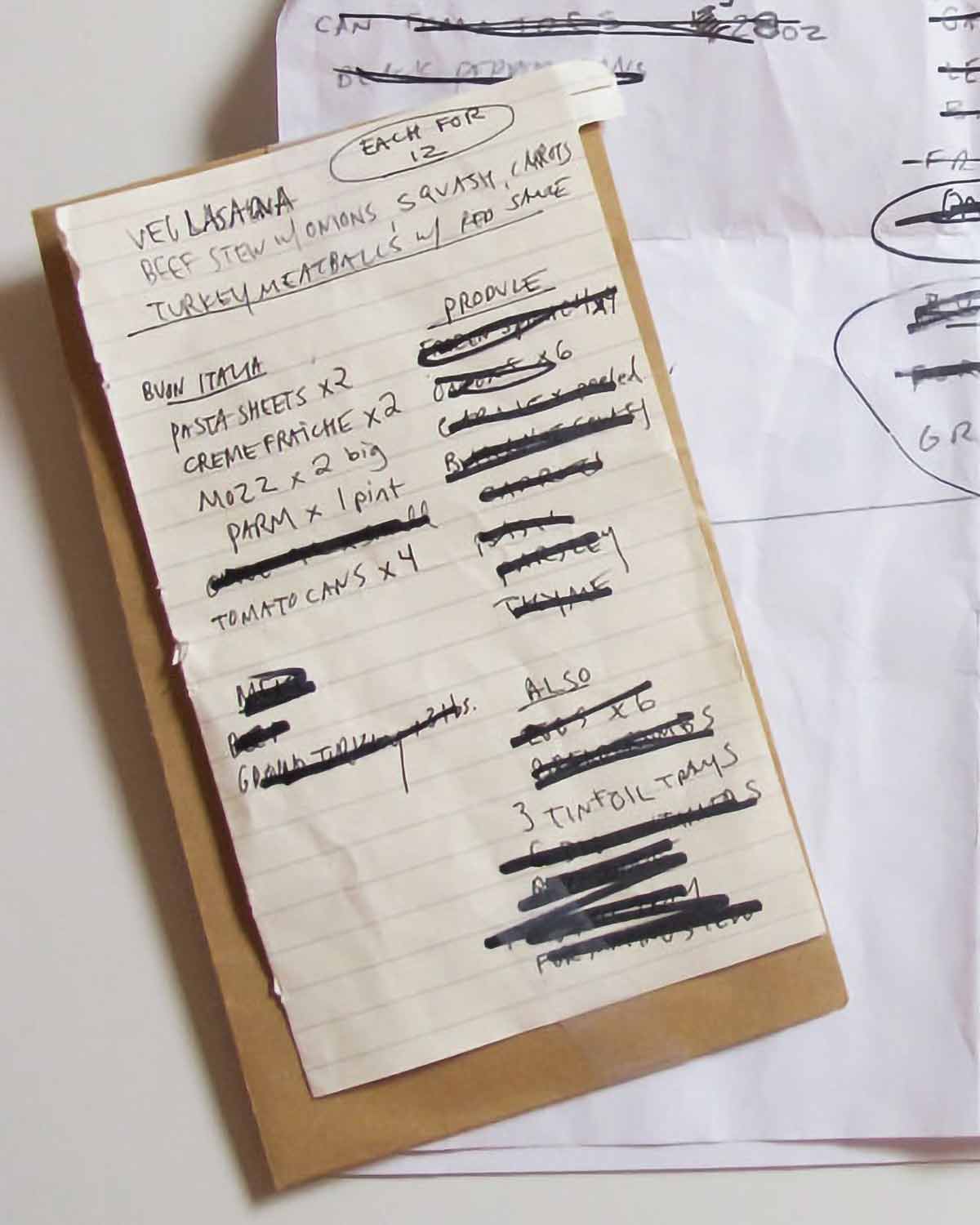
David: Absolutely. Completely is.
Julia: So it’s how I organize my thoughts and it’s how I think through things. So yeah, I offer a lot of lists in all of my books. Also within those lists, sometimes they’re what I think of as more suggestions for recipes rather than formal recipes. And again, it comes back to that idea that people go to cookbooks for all different reasons. And I think there’s a lot of people who like and enjoy and rely on formal, traditional recipes. And I think there are a lot of people who just want to see some different ideas and feel the inspiration from that. So they’re a little bit more casual and let me express that feeling.
Julia: And when I write those lists, the way I go about it is I always think about my dad sending me an email saying something like, “I have four leftover egg whites because I made this recipe that just used egg yolks. What do I do with them?” And the list I put in my book are basically these imagined conversations between me and my dad, because we have conversations like that all the time. I get emails like that from him all the time. So yeah.
David: My favorite one is seven meaningful conversation prompts. Now that I think is fascinating. Why did you include that? And give us some prompts that you included.
Julia: Sure. It’s so funny to be on this side of the podcast. So I have a podcast, which is a total labor of love, and maybe you relate to this, it’s an excuse to just talk to people I want to talk to and ask them questions.
David: Exactly. It’s true.
Julia: So I love hosting my podcast, it’s been the greatest excuse to have those conversations. And I spend a lot of time thinking about the questions I’m going to ask and how I’m going to ask them. And maybe you relate to this, too, you can do all that and then basically never look at your piece of paper and you’re just talking. But coming up with those questions is something I really, really enjoy doing. I also find myself doing a lot of moderating of panels and stuff like that. So I’m often in the position, whether I put myself in it or someone else asks me, I’m often in the position of asking people questions.
Julia: And I was thinking about this, especially at the beginning of the pandemic, when I wasn’t seeing friends and family as regularly or spending as much time in person, that type of thing. And I find myself on Zoom call after Zoom call with my loved ones and missing being with them in person sitting around a kitchen table, making them a meal, doing the thing I love to do.
Julia: So I started thinking about the types of questions I ask, whether it’s on my podcast or a panel, and thinking, “I can ask my grandmother these types of questions, too.” It’s a way to get to know people. And I think that the tables we sit around when we have meals are just the most amazing place for meaningful conversations. So yeah, one of the lists at the back of Simply Julia are seven questions for meaningful conversation. One is the question I ask every person who comes to my podcast at the end of the show, which is, what was your favorite thing to eat when you were growing up? It’s just one of my favorite questions because, especially when you don’t give someone too much time to think about it and they can’t overthink it, it always comes with a story. So questions have answers, but there’s usually stories behind them. And I love hearing people’s stories. So yeah, that’s where that list comes from.
Eating as an excuse for conversing
Renee: Well, and I love that it connects all your podcasts. You have such varied guests, from the woman you volunteer with at one of the kitchens to another cookbook author. In just the span of two podcasts, you guys talked about volunteering, about ghosts, about therapy. And I’m like, “What?” But it was great and it all tied together. And these are the types of conversations you would have at a dinner table.
Julia: Yeah, yeah.
Renee: And I love that you just remind people, “Hey, go a little deeper, think beyond the normal, what did you do today?”
Julia: Yeah. I love hearing you reflect on that to me because it comes so naturally to me. Like, “Of course, I’m going to talk to this person and I’m going to talk to this person. These are people I love or care about or respect.” But yeah, it’s a big wide range of things. So I guess it gets back to that scattered thing. But yeah.
Renee: Which is why you have lists.
Julia: Exactly. And that one question that ties things together, I’m always interested in the threads between things, especially things that seem really disparate.
David: Well, memory is such a big part of that question you ask people. And so I want to ask you that, what are some of the childhood dishes or recipes in your book that you have a special connection to?
Julia: Yeah. I would say Simply Julia is many things, but one of them is it’s absolutely the most personal book I’ve ever written. And so many of the recipes are tied to those early childhood memories. One of them, probably the most complicated recipe in a book full of incredibly simple and easy recipes, and it’s the recipe for stuffed cabbage. And it’s one of my favorites because it takes me right back to my childhood. And so I grew up, I’m the child of two Jewish New Yorkers, I’m the granddaughter of immigrants. And on my dad’s side, I had the great blessing, I would say, of knowing my great-grandmother for the first few years of my life. And she lived in North Miami beach and there was an unbelievable restaurant called the Rascal House in Florida. It’s no longer there, but you can look up pictures of it online. It looks like a movie set. It was this hysterical place. And as a kid, it felt like going to a carnival or something, it was big and loud and colorful.
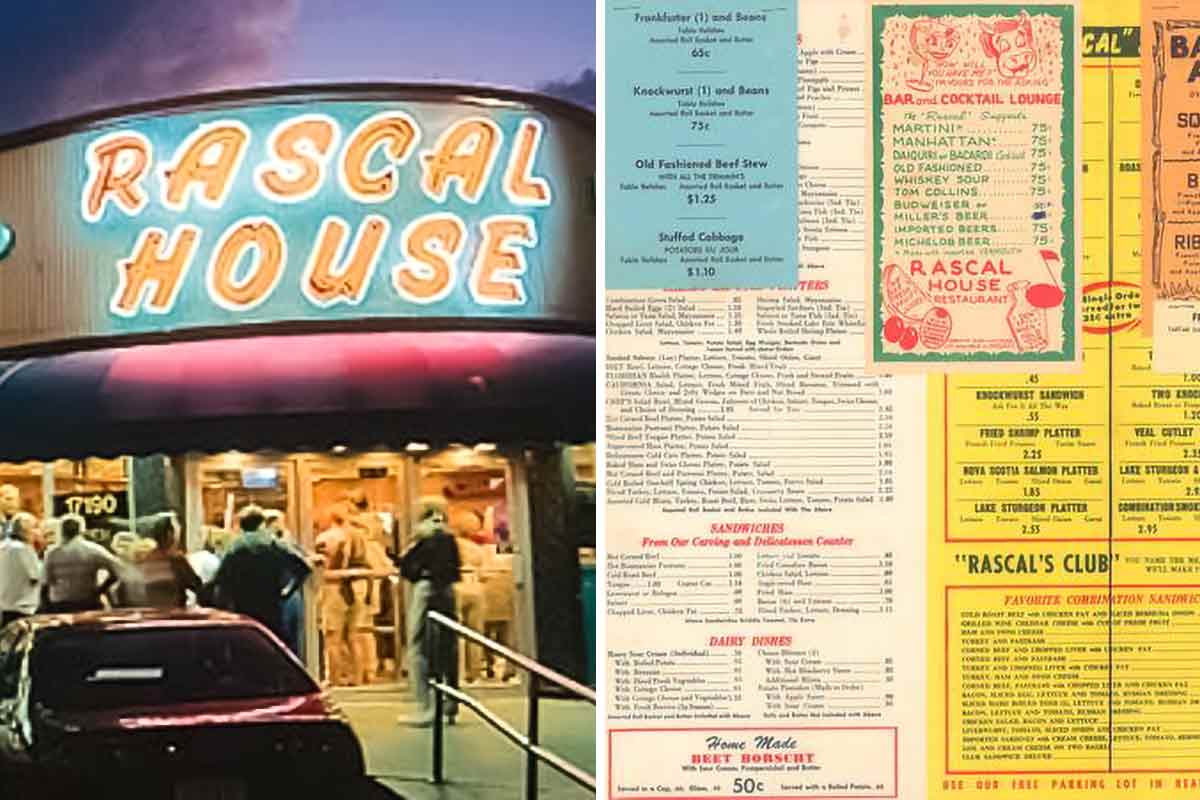
Julia: And my family would always go there when we visited my great-grandmother, and someone at the table, usually my dad, would always order the stuffed cabbage. And I loved it, and it was this super old school peasant food dish. And it came from essentially the places my grandparents came from, it came from Eastern Europe. But then that dish made its way to America and it made its way probably through places like New York where immigrants and refugees came through. My parents came through Ellis Island, and that dish found its way to Florida, to all the retired Jewish New Yorkers. And I got to eat it as this little kid and hear the sounds of all the families in the booths and the clinking of the bowls of pickles and coleslaw that come on the table. It’s such an evocative memory for me. So yeah, that’s one that really stands out.
Julia Turshen’s TexMex Meatloaf
David: And there’s a story behind your TexMex meatloaf also, which sounds incredible.
Renee: Which sounds fantastic.
David: Can you talk about that?
Julia: Of course, I can happily talk about it. So yeah, when I was growing up, both my parents worked full-time so the weekends were really the time when we, as a family, I have an older brother, would eat together. And my dad did most of the weekend cooking. And one of his favorite things to make, his name is Doug, and it came to be known as Doug’s Famous TexMex Meatloaf. It was famous amongst four people, my parents, my brother, and I.
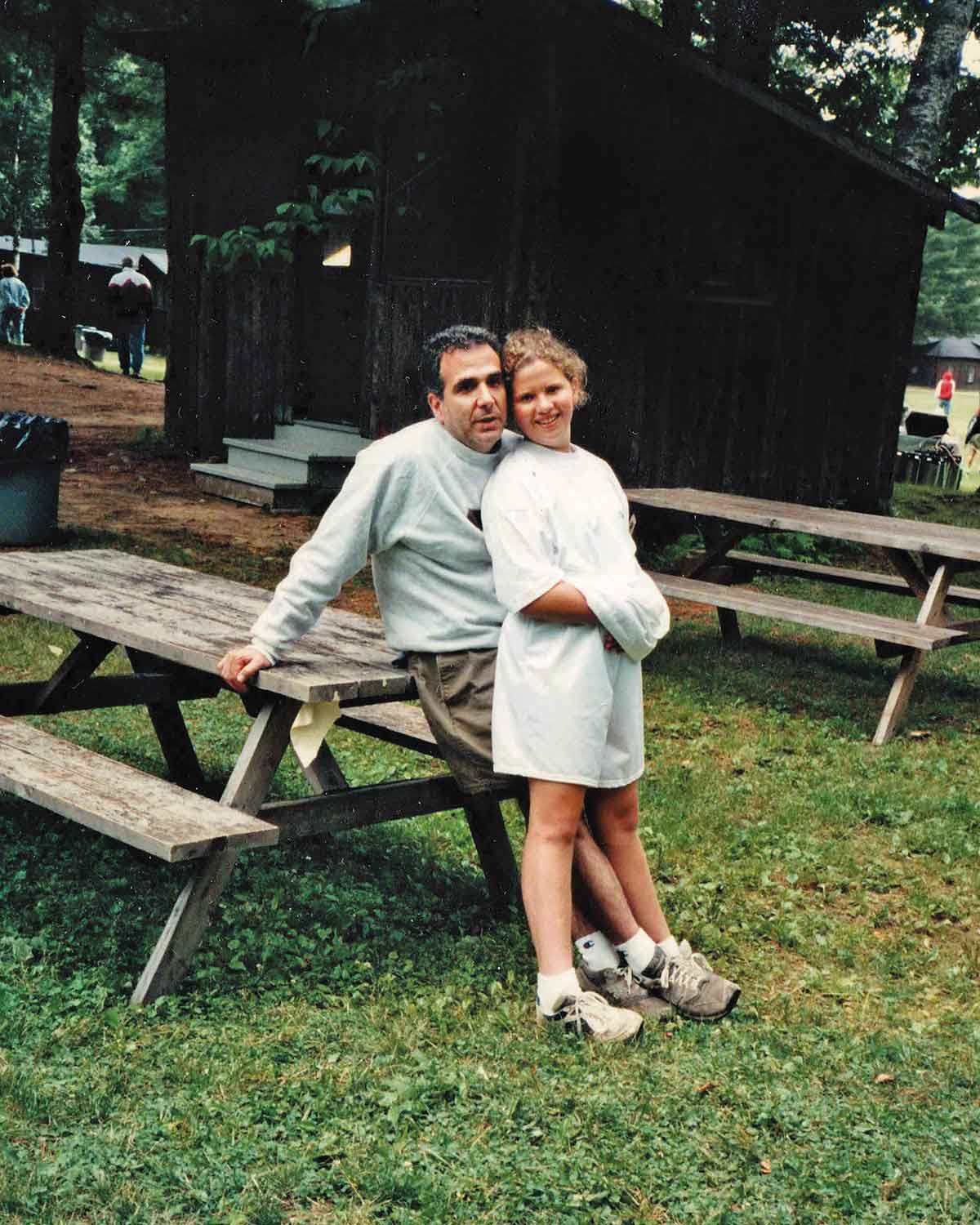
Renee: It was still famous.
David: But it was a quorum. It was a quorum.
Julia: Exactly. And when I think about it, it’s my favorite kind of cooking. It’s this resourceful, slightly clever type of cooking. And so my dad would get probably just meatloaf mix from the grocery store, the butcher, pork and beef and veal. I used turkey in the book because that’s what my wife likes. And instead of beaten eggs and bread crumbs, the things you usually put to bind meatloaf, my dad would put a jar of salsa and then he would crush a bag of tortilla chips, and then he would fill the whole thing with so much grated Cheddar cheese and put more on top. And we loved it. It was so good. And the best part was Sunday when we would have cold meatloaf sandwiches for lunch.
David: Yes.
Julia: So the meatballs are just a pretty straightforward version of the meatloaf. I turned them into meatballs mostly because I’m just really impatient and they take a lot less time to cook. And you don’t have to slice them or anything. So yeah, that was the reasoning there.
David: Right.
Cooking as meditation
Renee: Julia, you were talking earlier about sharing food with others, but it’s sharing so much more than just food.
David: It’s the vehicle, yeah.
Renee: And you refer to doing the same thing with ourselves a lot. Throughout everything I’ve read from you, you talk about being present, and really in the moment at hand. Which I have my ideas about with cooking, I’m sure we all do, but can you talk to us a little bit about why you think that’s important and maybe just the little ways people can start?
Julia: Sure. I feel like so much of what we’re talking about, maybe it’s because I just came out of a therapy session, but so much of what we’re talking about, I think comes back honestly to my life as a person who lives with a lot of anxiety, some of it inherited and some of it just completely made on my own. And I’m always looking for tools to handle that and to go through life less anxious and just more calm and more connected and ultimately more present. I find that when I’m present, when I’m fully within the moment, and it doesn’t have to be happy or joyful, it’s great when it is.
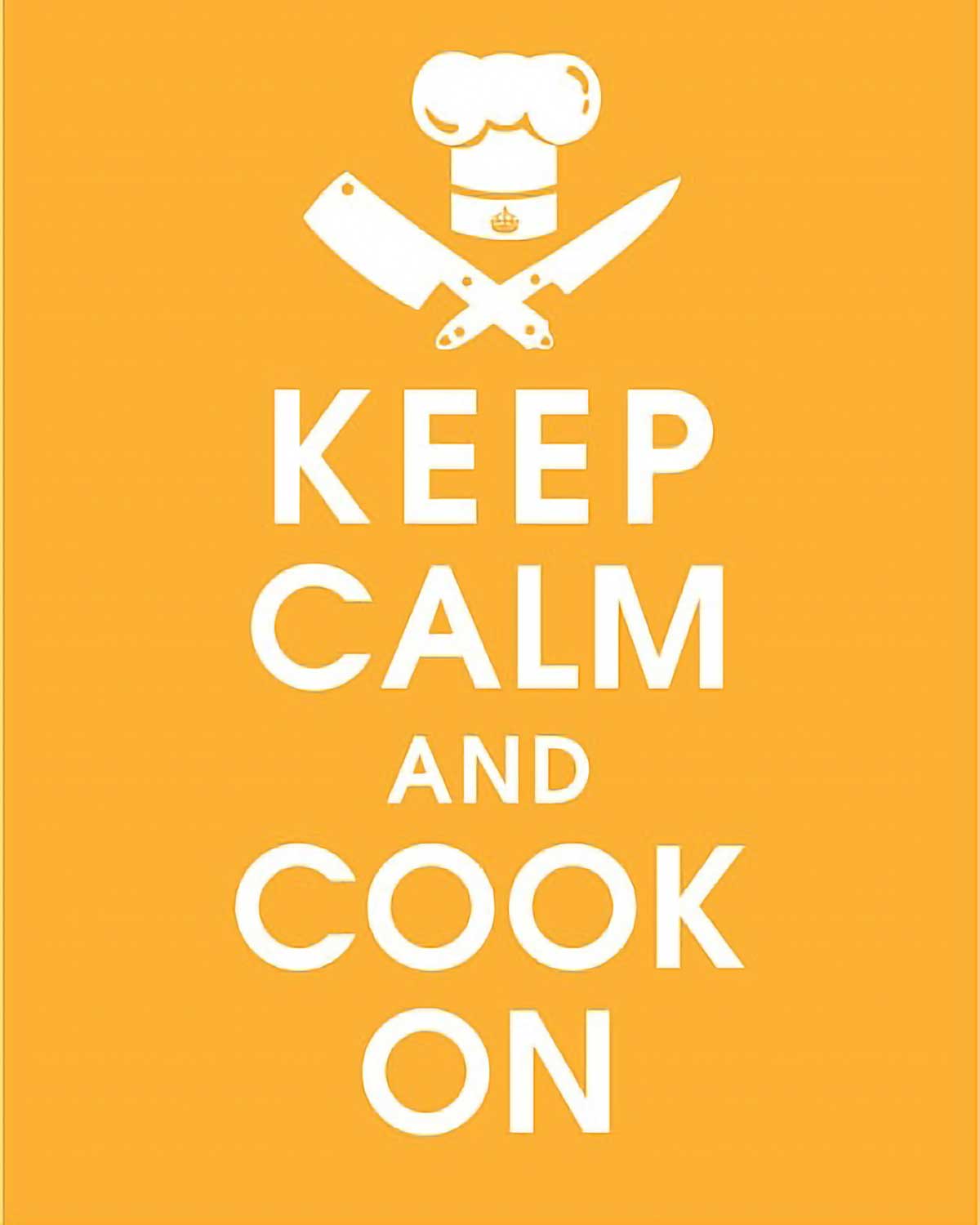
Renee: Sure.
Julia: But when I’m present, I’m not anxious. When I’m anxious, I’m worried about something. So I’m thinking about something that’s going to happen or I’m thinking about something that maybe just happened and I’m replaying it or something. So sometimes I feel like when I try to not be anxious, that puts a lot of pressure on myself. But when I just try to be present, I find I can do it more easily. And all of a sudden I get the thing I so desire, which is just to feel calm and here and now. So cooking has been one of the most tremendous tools for me to accomplish this. When I’m cooking, especially if I’m making more than one thing at a time, which I know can cause anxiety for a lot of people, but for me, it means I’m paying attention to what’s bubbling on the stove, I’m paying attention to what I’m slicing. I have to be completely present.
Julia: And when I’m eating, whether it’s by myself or for me, preferably with other people, because I really enjoy that, my goal is always to feel super present. It’s to sit at the table and not be on my phone at the same time, that kind of thing. So I feel like cooking and eating, which most of us are lucky to do every day, it offers me these opportunities one after the other to be present. And so if I can be present for my meals and cooking them, I’m present for most of the day. And so that makes a really nice day. So yeah.
Renee: And that might start to leak out into other areas of your life.
Julia: Exactly.
Renee: Yeah.
Julia: Exactly. Yeah.
David: I agree, because this weekend I was making financiers and I was making pistachio ones and I had all the ingredients. And I love to bake and I started getting so anxious because the batter was a different consistency than I remember, and I haven’t made them in years and years and the molds weren’t exactly right. I actually stopped, I put everything down halfway through, and I said, “What are you doing? Why are you rushing this? Why are you getting anxious? Why are you criticizing yourself? This is supposed to bring you joy, it’s not supposed to make you more tense.”
David: And when I let go and I just stayed in the moment and said, “It is what it’s going to be, let’s just focus and have a good time.” They ended up being okay, they weren’t the greatest ones I’ve ever made, but I certainly had a much better time. And that to me is something that I sometimes forget that being in the kitchen, because we’re all in this as a business, being in the kitchen is supposed to be something that’s enjoyable, not always has a deadline attached to it.
Julia: Yeah.
David: And so being present, I think, is terribly important.
Renee: Or for the home cook to have a sense of accomplishment and expectation, because so much of them gets put on the line, and they feel like it’s this big test, I feel.
Julia: Absolutely. I agree with both of you so much, and I feel that feeling that you’re describing often. And David, it’s so great that you had that moment to talk to yourself and remind yourself. That’s big, because that could have been a totally different experience. And that said, I also know that for some people, the idea of cooking feels so stressful. It’s the thing that’s going to make them feel anxious or worried or whatever.
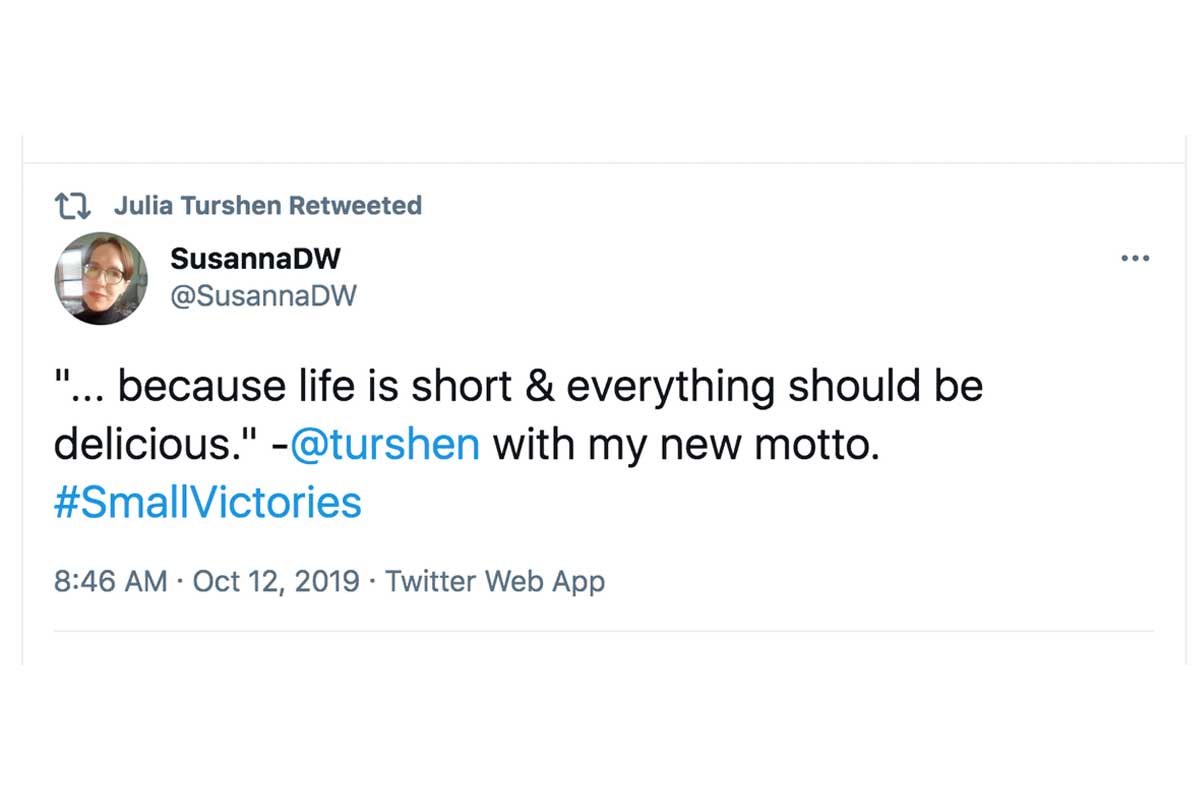
Julia: So I know it doesn’t provide this for everyone, but I think being connected to food in some way, it doesn’t have to be cooking, it could be the pleasure of picking out vegetables or fruit, whether it’s the farmer’s market or the grocery store or online, choosing things as many people are right now. It could be the satisfaction of having something you love to drink, whether it’s wine or I don’t know, fresh milk, whatever you want. Whatever does it for you. That feeling of just feeling connected and present. Yeah, for me, it comes through cooking, but I know that’s not the case for everyone. So I think it’s always just good to remember food offers a lot of ways into that feeling.
David: Well Julia, this has been wonderful speaking to you. As a matter of fact, I think we’ve been so present, there’s so many questions that we haven’t asked you. So would you come back on the show again?
Julia: I would love to. I’ve loved speaking with both of you. That went by incredibly quickly. And I just want to say, since we’re talking about asking questions and all this stuff, I appreciate the thought you put into your questions and how much you have read and everything, it means a lot. So yeah, please, anytime I would love to keep talking about all these things. These are my favorite things to talk about.
Renee: Lovely. Thank you.
David: Thank you. Julia Turshen is a New York Times bestselling author of three cookbooks, including Now and Again and Small Victories, and has been a contributor to 12 more. Her latest book, Simply Julia: 110 Easy Recipes for Healthy Comfort Food, just hit bookshelves, so get yourself a copy pronto. And you can find Julia on Instagram and Twitter @turshen. Or you can go to her website at juliaturshen.com.
Renee, it’s interesting because we talked all about food and memory and growing up, and the one question I forgot to ask her was what was her favorite food growing up? So I’m going to ask you, what was your favorite food growing up?
Renee: Oh boy, there were lots. If I had to name just one…
David: Then just one.
Renee: …it would have to be my mom’s potato chip-crusted drumsticks. It was made when we couldn’t make it to the store, usually during a blizzard or something.
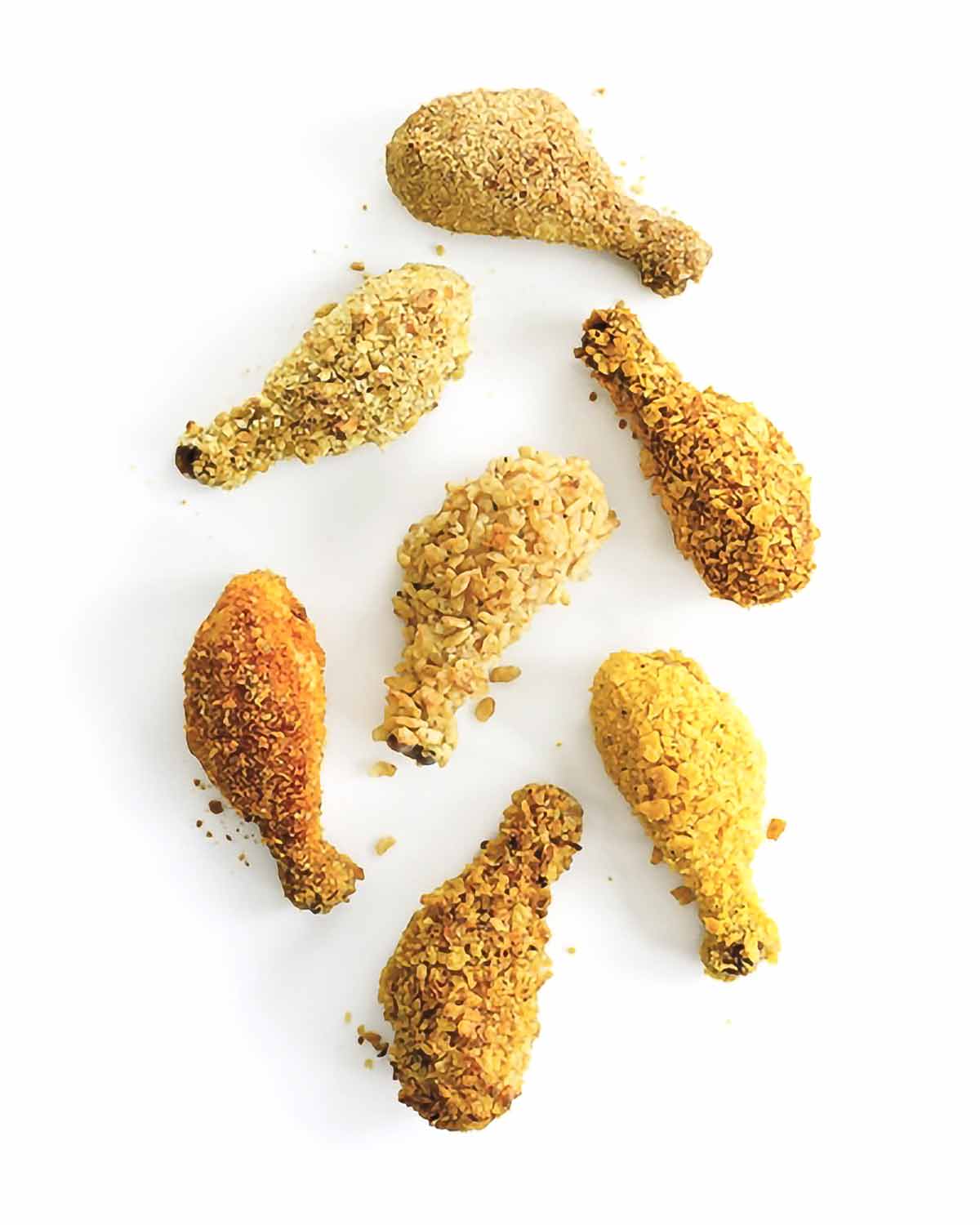
David: Right.
Renee: She would take the crumbs at the bottom of the bag of potato chips.
David: No.
Renee: Yeah. Chicken drumsticks out of the freezer, roll them in melted butter. Actually, I think she probably used melted “oleo” as she called it back then.
David: Oleo.
Renee: Margarine. And she slid them on her rimmed baking sheet, the one that’s all dented and scratched and has blackened stuff from the last decade burnt on in places, and she’d bake them until they were crisp and the butter would be bubbling. And the potato chips that were in contact with the sheet pan would be burnt to a crisp, but everywhere else, they were almost winking at me with the little bubbles of butter.
David: Oh wow.
Renee: It was a lot better than the casseroles we had almost every other night. What about you? Favorite food?
David: If I had to pick just one dish from my childhood, I would say it was my mother’s Portuguese beans. And I use the term loosely because my mother is Portuguese, was raised in America, though, but her family and everyone else was from the Azores. So she combined frank and beans with Portuguese flavors. So it was navy beans with paprika and onions and garlic and some tomato paste. And it was thick and it was very savory and it had bacon in it. Which that’s fine, that all works, but then she had hot dogs. She had just plain old hot dogs in there, and she’d put a whole pack of eight hot dogs in there. But the thing I remember most is she served them in those steam trays that went out, like caterers would have, she just would get them at the supermarket where she worked, she worked at Fernande’s supermarket. And that’s what she made them in. And that was a Sunday dinner often. And one of my favorites. And I would them cold, too, I just loved them.
Renee: Do you ever make them?
David: Do I ever make them, yeah, they’re actually in my cookbook, too. My version is no hot dogs, it’s in my cookbook.
Renee: Okay, that’s why they recognize it. Yeah.
David: Yeah. But they’re there and they’re really wonderful. Memories about food.
David: This podcast is produced by Overit Studios and our producer is the always present Adam Clairmont. You can reach Adam and Overit Studios at OveritStudios.com. And remember to subscribe to Talking With My Mouth Full wherever you download your favorite podcasts. And If you’d like to leave Renee and me a recorded question, or a compliment—we love compliments!—visit our podcast page at leit.es/chat. Press and talk away and maybe you’ll be featured on the show. Chow!
Renee: Chow!

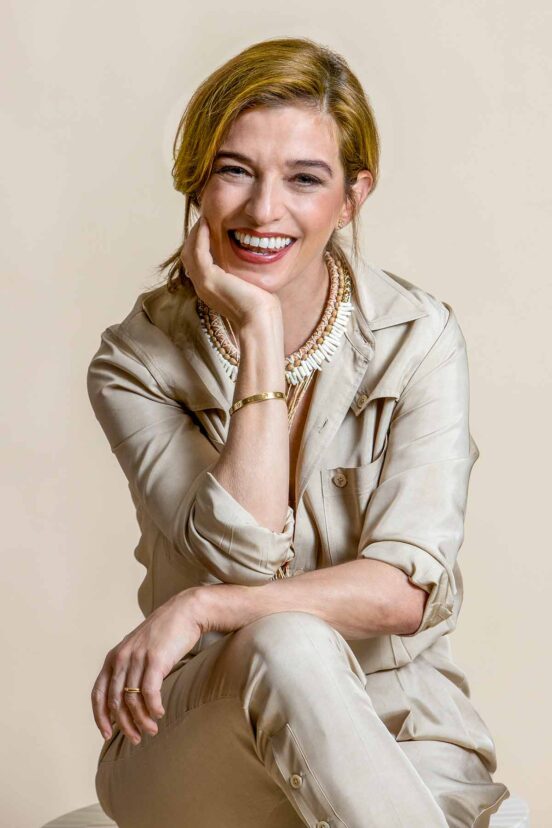
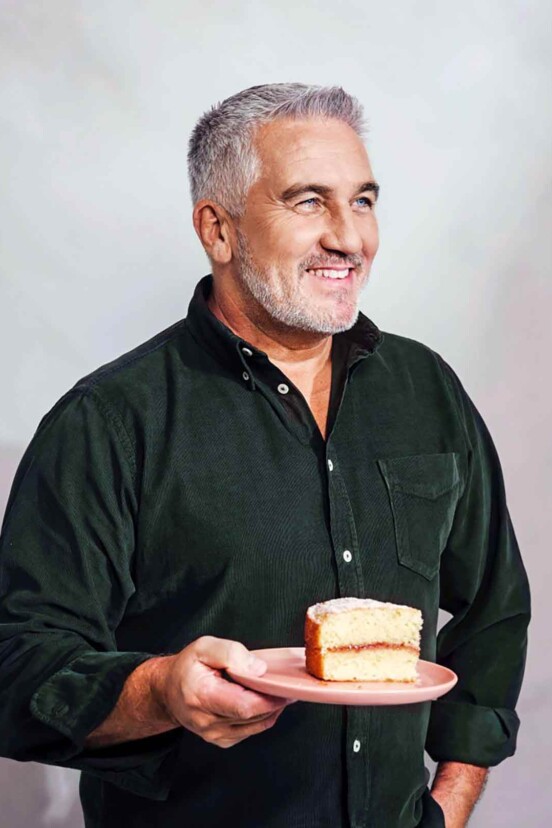
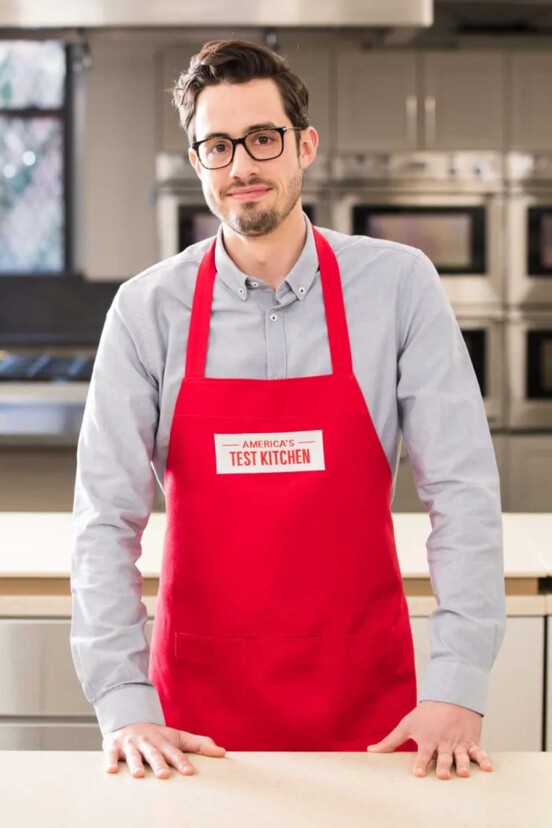









Great podcast! Connecting poetry with cooking is something Julia does very well and I can find them going very well together. I relate with anxiety and I find keeping myself busy always helps, but I never thought to try a recipe and create different foods. Even just reading a cook book relaxes me. Your podcasts also help me to feel calm and I really enjoy them. By chance, will you be continuing to create more episodes in the future? Let me know! Thanks!
Derek, thank you kindly! We hope to do more podcasts in the future–or at least special editions–but right now we have to keep up with recipe content!